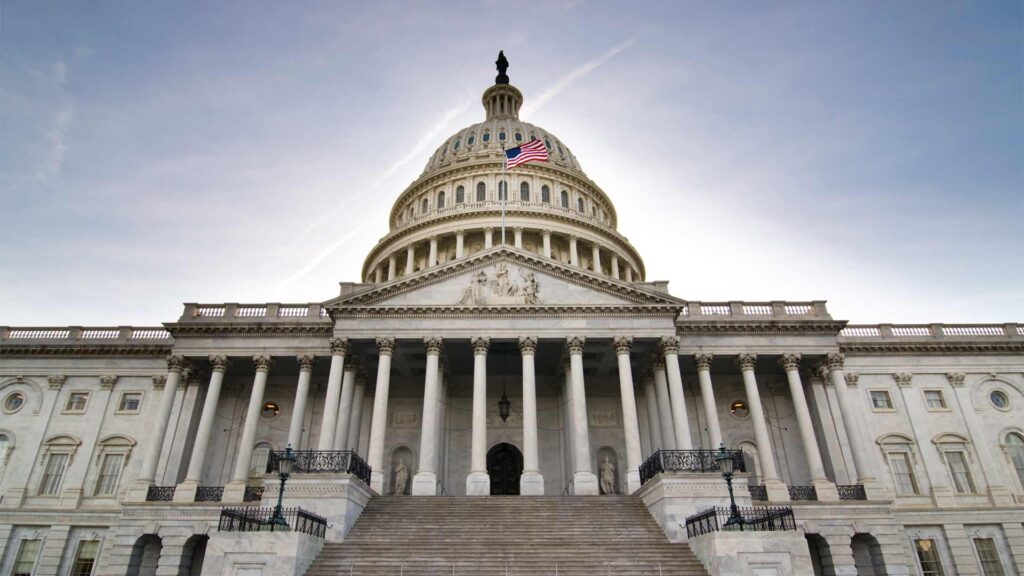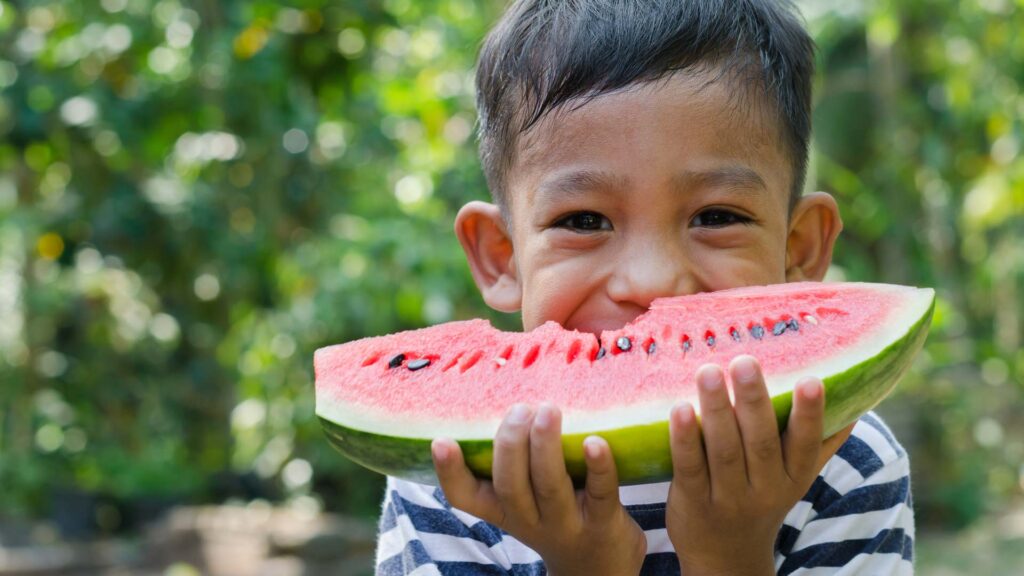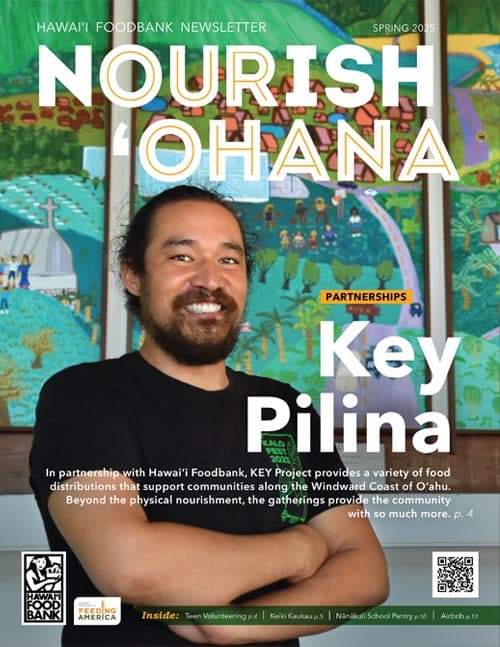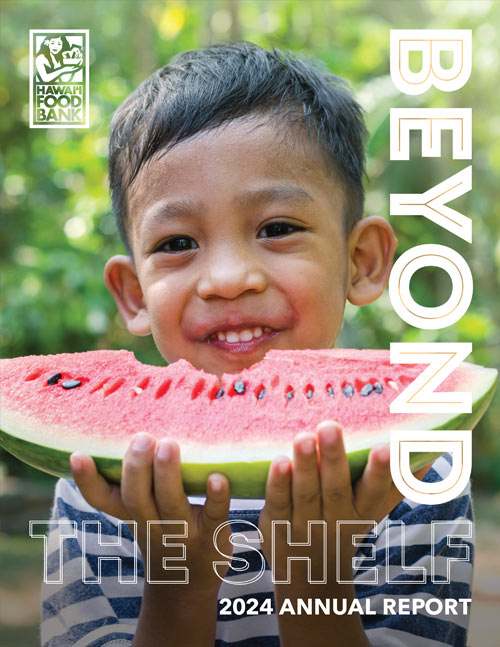Leaving a Legacy: Raymond’s Story
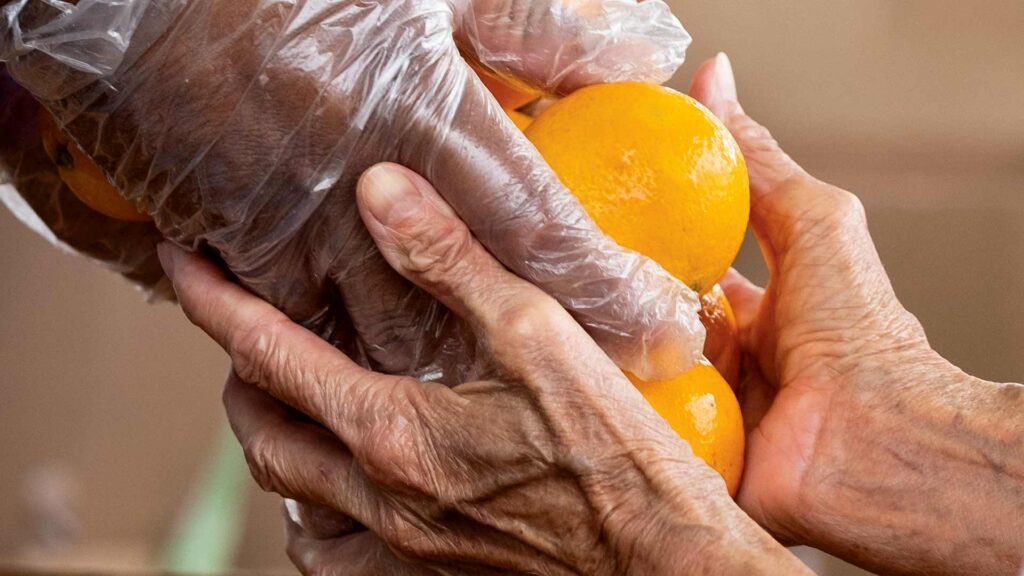
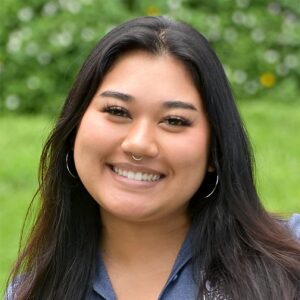
Curstyn Yoshimoto
Growing up in the Midwest during the Great Depression, Raymond Lowman was no stranger to hunger. Before he passed away in 2023, he made sure to include Hawai‘i Foodbank in his will – leaving a legacy that will nourish thousands.
When Athena DeRasmo thinks of her late grandfather Raymond Lowman, she remembers his kind heart and giving spirit. “He wasn’t tight-fisted. You’d think that someone who comes from poverty would be like that, and he wasn’t. He was incredibly generous,” says Athena.
Raymond began donating to Hawai‘i Foodbank in 2006, giving every year until his passing in November 2023. “When he passed, he had residual wealth and said very clearly in his trust where he wanted his money to go. He had listed about half a dozen charities,” explains Athena. Hawai‘i Foodbank was one of them.
Athena says she got closer to her grandfather during the COVID-19 pandemic: “There was nothing to do, so we watched Jeopardy and he told me his stories,” she says. “He talked about hunger being a big part of his childhood. His family was very poor, but they were resourceful and always working.”
Born in Kansas in 1930, Raymond spent his early years in the middle of the Great Depression and the Dust Bowl – some of the hardest times in U.S history. “There weren’t safety nets in the 1930s that we have now. There was no SNAP, no welfare, no nothing,” Athena says. “This was a kid who got Cs and Ds in high school. I think he did poorly because he was hungry. He was tired all the time.”
“I remember him telling me a story about gleaning the crops. Farmers would leave small sections of their land unharvested,” Athena recalls. “The poor would glean produce from these. It wasn’t considered a crime or trespassing – everybody just looked the other way – and you only took what you needed.” Raymond would often walk for miles in search of food to bring back to his family.
Gleaning remains a common practice among farms and food banks today, where excess crops are harvested to provide for those facing hunger – reducing food waste and ensuring more neighbors and families can access fresh, healthy produce.
As soon as her grandfather turned 18, Athena says, “He had already signed the paperwork to join the Navy – and he never looked back.” The Navy took Raymond all over the world, eventually leading him to Hawai‘i in 1964, where he met his wife-to-be, Marie. And after a 27-year career in the Navy, Raymond retired as a lieutenant. He then began working for the State of Hawai‘i, doing ground control at the Daniel K. Inouye International Airport until his second retirement in 1992.
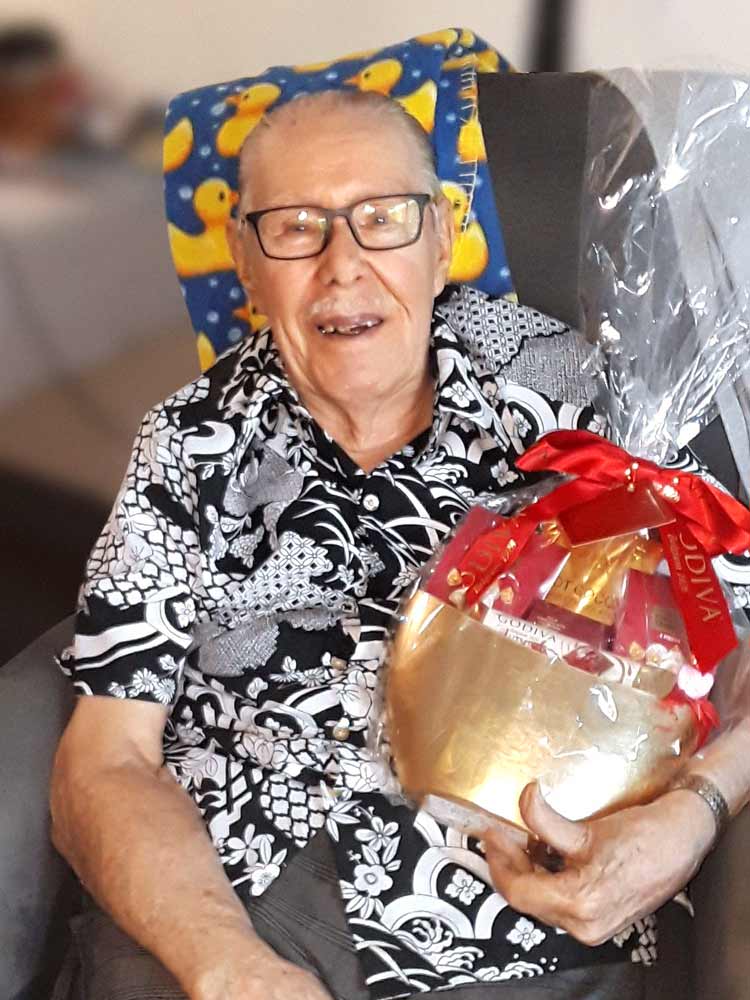
"He talked about hunger being a big part of his childhood. His family was very poor, but they were resourceful and always working ... He was given a very bad set of cards – and he transformed it. Hawai‘i Foodbank, he just thought that was incredibly important work, and that’s why the Foodbank on his list.”
Raymond and Marie “lived a very nice middle-class life,” says Athena. “And anything they wanted – if they wanted to take a trip, if Grandma wanted new jewelry – they could make it happen.”
He dedicated much of his later years to philanthropy and community service as a Freemason and Shriner – and doing his favorite volunteer job: washing the elephants at the Honolulu Zoo.
“There weren’t a lot of choices for him. He was given a very bad set of cards – and he transformed it,” Athena reflects. “Hawai‘i Foodbank, he just thought that was incredibly important work, and that’s why the Foodbank was on his list.” Raymond was part of the John White Legacy Society and designated Hawai‘i Foodbank in his will.
Raymond’s lifetime donations have provided food for nearly 125,000 nourishing meals.
Interested in making a planned gift? Visit our Planned Giving page for more information.

